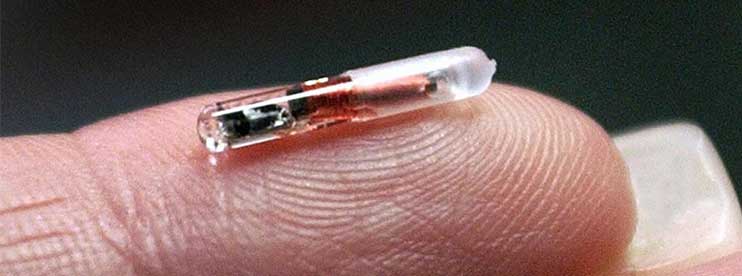British companies are planning to microchip staff to boost security and restrict employees accessing sensitive areas of the business.
The tiny chips, implanted in the flesh between the thumb and forefinger, are similar to those for pets. They enable people to open their front door, access their office or start their car with a wave of their hand, and can also store medical data.
UK firm BioTeq, which offers the implants to businesses and individuals, has already fitted 150 implants in the UK.
In Sweden, the devices have already taken off among young people who host “implant parties” while 4,000 citizens are chipped, including 85 employees at travel operator Tui.
Biohax, a Swedish tech firm, has disclosed it is in talks with a number of UK legal and financial and financial businesses, including one with “hundreds of thousands of employees”.
Trades Union Congress concerned over tech being used to control and micromanage.The CBI, which represents 190,000 UK businesses, voiced concerns about the prospect.
A CBI spokesperson said: “While technology is changing the way we work, this makes for distinctly uncomfortable reading. Firms should be concentrating on rather more immediate priorities and focusing on engaging their employees.”
BioTeq has also implanted them in employees of a bank testing the technology, and has shipped them to Spain, France, Germany, Japan and China.
They cost between £70 and £260 per person. Northam himself and all the directors at BioTeq and one of his other companies, IncuHive, have been microchipped.
“These companies have sensitive documents they are dealing with,” said Jowan Osterlund, the founder of Biohax and a former professional body piercer. “[The chips] would allow them to set restrictions for whoever.”
The chips, about the size of a grain of rice, cost pounds 150 each and are similar to those used for pets. As well as restricting access to controlled areas, microchips could be used to buy food from the canteen, enter the building or access printers, said Mr Osterlund.
>Juthy Saha












